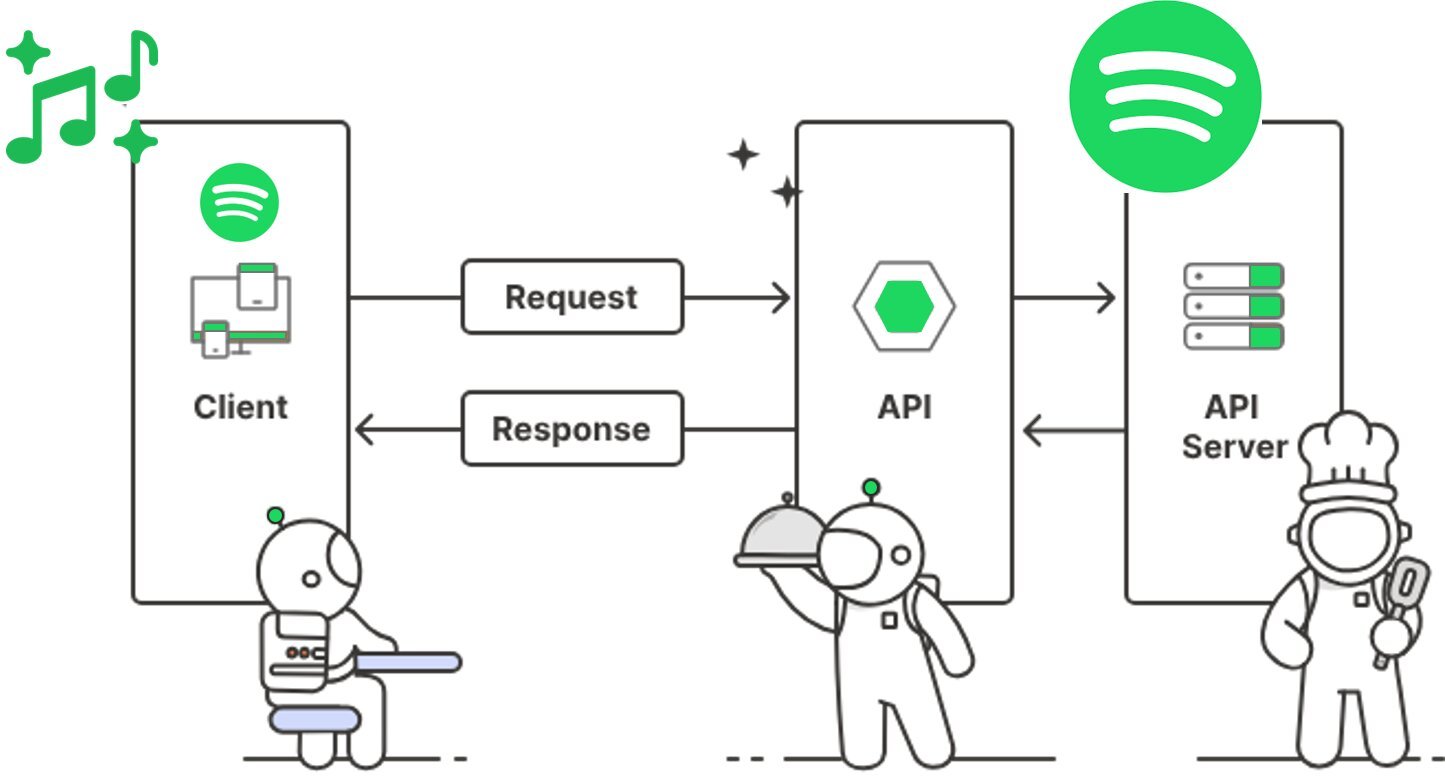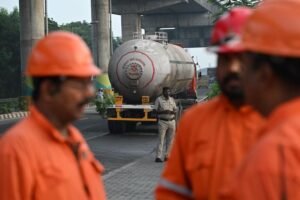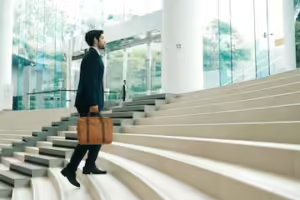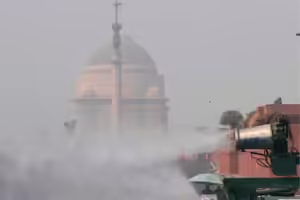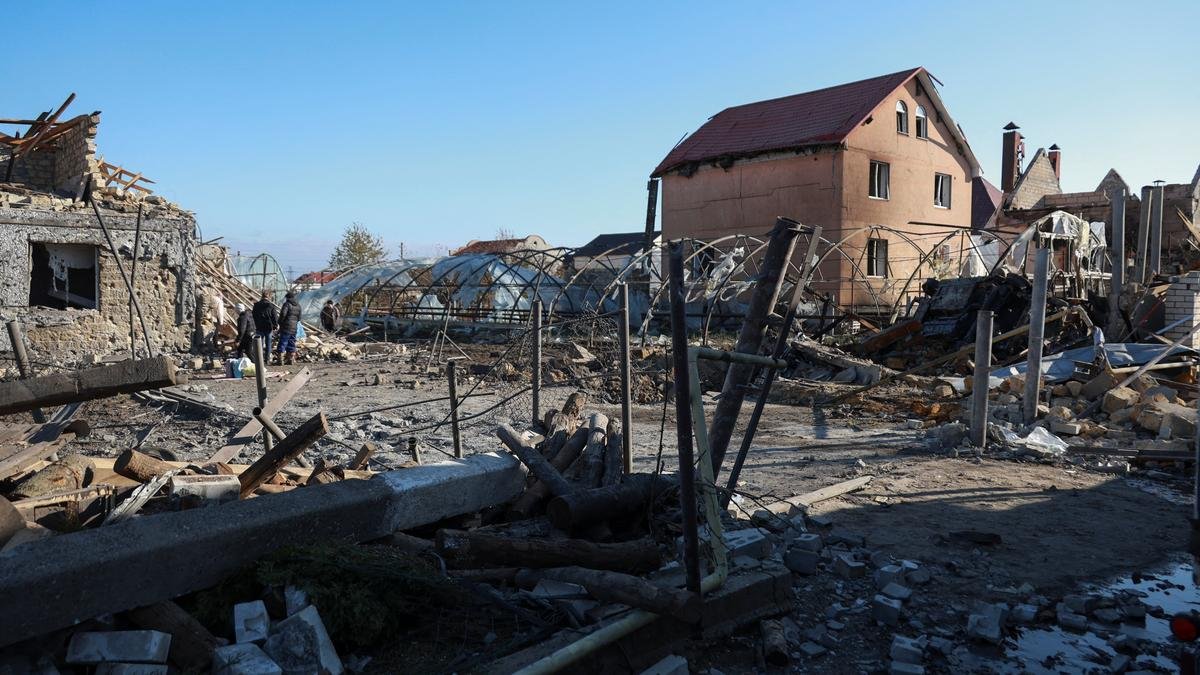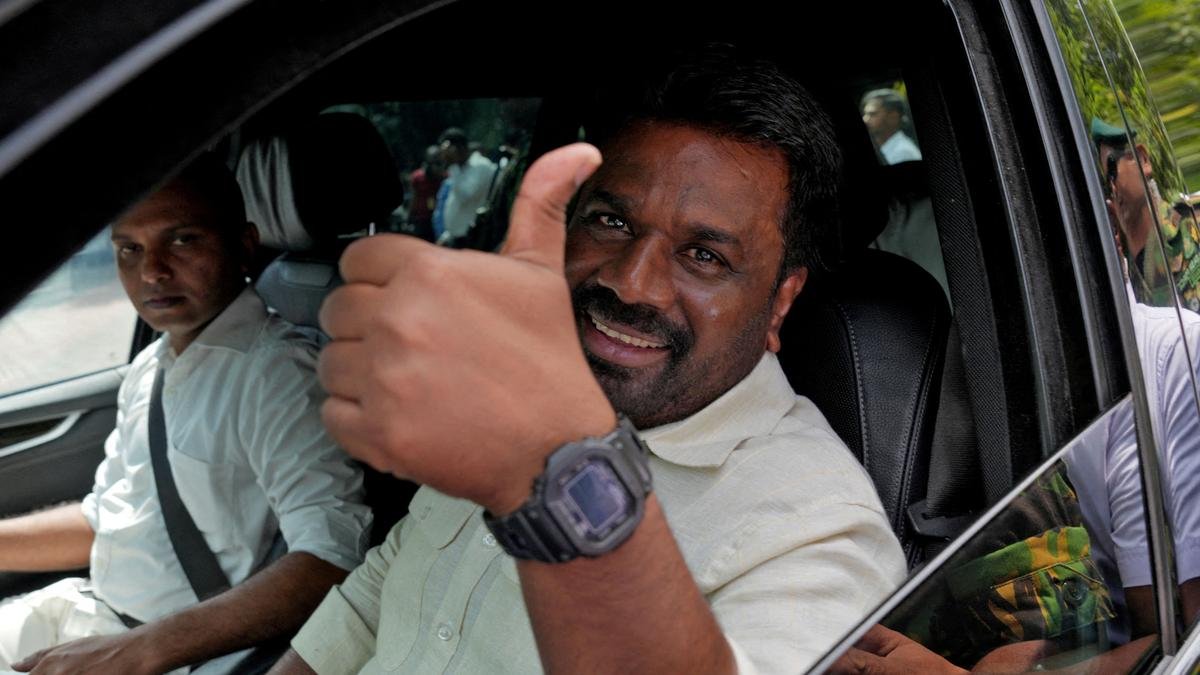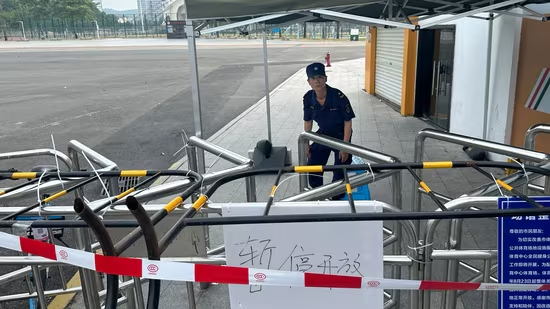‘Death trap’ Channel boats traded by smugglers in German city – BBC undercover
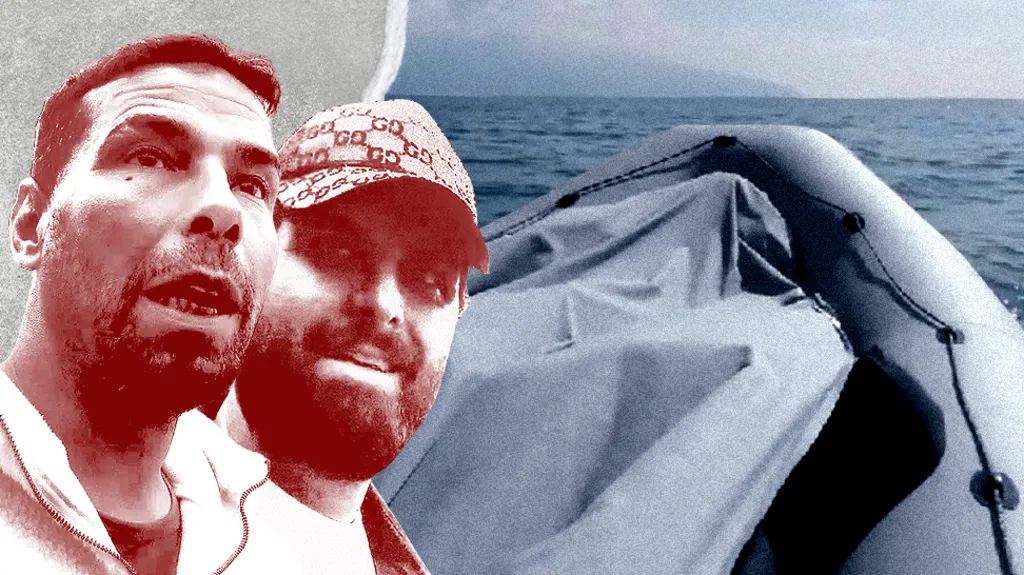
The complete package, as we’ve been informed, is priced at €15,000 (£12,500). This amount would grant us access to an inflatable dinghy equipped with an outboard motor and 60 life jackets for the purpose of crossing the English Channel.
In the city of Essen, located in western Germany, where a significant number of migrants reside or transit, two small-boat smugglers extended an offer of a “good price” to an undercover BBC journalist.
Throughout a comprehensive investigation spanning five months, the BBC has uncovered a notable link between Germany and the dangerous business of smuggling humans across the English Channel.
Germany has emerged as a key hub for storing boats and engines destined for Channel crossings, a fact acknowledged by the UK’s National Crime Agency amidst the new UK government’s pledge to crack down on criminal gangs.
Smugglers disclosed during secretive filming that they stash boats in various clandestine facilities while engaging in a game of hide-and-seek with the German authorities.
UN statistics reveal that this year has become the deadliest on record for migrants attempting Channel crossings, with over 28,000 individuals embarking on the perilous voyage in overcrowded small boats.
__
Outside the central station in Essen, our undercover journalist stands poised for the next assignment.
Disguised as a Middle Eastern migrant, he is equipped with a concealed camera, ready to embark on a journey across the Channel to the UK accompanied by his family and friends.
For security reasons, it is imperative that he maintains his anonymity; henceforth, he will be known as Hamza.
A man is being approached by him. For several months, Hamza has been in contact with him through WhatsApp calls, having obtained his number from a connection in the migrant community. However, this is their first face-to-face meeting.
The individual we are referring to goes by the name Abu Sahar, or at least that is the name he has provided.
Following Hamza’s outreach, discussions have taken place regarding Sahar’s assistance in securing a dinghy for transport to the southern coast of England.
Hamza explained that negative encounters with smuggling groups in the Calais area compelled him, his family, and his friends to take matters into their own hands when attempting to make the crossing, a decision considered out of the ordinary.
Sahar has shared a video featuring an inflated dinghy that he claims is fresh, in stock, and stored in a warehouse located in the Essen vicinity.
More footage is set to be provided by him, showcasing additional boats that bear a resemblance to each other, along with outboard engines being started.
Hamza expressed his desire to personally evaluate the quality of the items being presented, which is why he has emphasized the need for a face-to-face meeting.Hamza has expressed his desire to personally assess the quality of the available items, which is why he has emphasized the need for a face-to-face meeting.
Monitoring Hamza’s activities, a BBC crew stands ready in close proximity, prepared to intervene swiftly if anything goes awry and necessitates his immediate extraction.
While strolling through the heart of Essen, Sahar expresses concern about the risk involved in visiting the warehouse to inspect the boat, despite mentioning its proximity of just a 15-minute drive.
Sahar explains to Hamza that the reason the boats are stored in this region of Germany is due to considerations of “safety” and “logistics”.
Just a short drive of four to five hours from the Calais region lies Essen, a location strategically positioned to provide quick access to boats while also maintaining a safe distance from the closely monitored shores of northern France.
In Germany, although police operations targeting people-smuggling occur, it’s worth noting that assisting in such activities is not considered illegal under German law if the destination is a non-EU country like the UK post-Brexit.
Berlin’s interior ministry contends that due to the lack of geographical proximity between Germany and the UK, there is essentially no direct smuggling occurring. However, a source from the UK Home Office expressed “frustration” with Germany’s legal system in a statement to the BBC.
Sahar brings Hamza to a café for coffee and to enjoy a smoke, but they decide to switch tables to avoid being overheard by the Arabic speakers sitting nearby.
Approximately 35 minutes elapsed before Sahar rose from his seat and cautioned Hamza, “Speak more quietly, he is approaching.
Approaching is a man elegantly attired in a baseball cap, known as “al-Khal” in Arabic, signifying “the Uncle” and denoting a figure esteemed with great respect.
Accompanied by a mostly silent companion, Khal is seen, the other man seemingly in the role of his bodyguard.
Before conversing with the waitress in German and then reverting to Arabic, his mother language, Khal initiates with a few handshakes.
The request is made to Hamza to surrender his phone, which is positioned on a different table.
The bodyguard, positioned beside Hamza, remains focused on him for a significant portion of the following 22 minutes.
The BBC is allowed to capture video, but not audio, during the meeting due to the stringent German regulations in place.
Part of our coverage relies on the firsthand memory of our undercover journalist, a well-known practice in the field of investigative journalism in Germany.
Messages, call logs, and voice memos exchanged between Hamza and the traffickers provide supporting evidence for this.
Khal urges Hamza to introduce himself and state his intentions without shouting.
Hamza confidently reiterates his fabricated narrative, seemingly with persuasive effect.
He further indicates that the potential acquisition of the boat under current deliberation might not necessarily breach any laws, given the ambiguous aspects within the German legal framework.
However, Khal disregards that proposal.
He inquired about the source of that information, stating that it is against the law.
It seems that despite the existence of legal loopholes in Germany pertaining to boat-smuggling, these individuals are aware of their connections to a larger criminal network.
Sometimes, while sipping their coffee, Khal playfully pokes Hamza in the chest as the smugglers reveal that they own approximately 10 warehouses in the Essen region.
Implied in the statement is a method for distributing their belongings in the event of a police raid, an incident that reportedly occurred just “a few days ago.
On occasion, there are suggestions that they receive advance notice of the police’s impending arrival, prompting them to provide a decoy in the form of “bait” – referring to provisions that are confiscated, yet insufficient to significantly hinder their operation.
The smugglers boast about their capacity to deliver supplies to Calais in a mere “three to four hours,” suggesting their confidence in taking the motorways instead of opting for less conspicuous back roads.
Boats can quickly reach Essen due to its strategic location, making it possible to deliver them within a single morning or afternoon, especially when there is a high demand for crossing attempts prompted by favorable weather forecasts.
The Global Initiative against Transnational Organized Crime’s research reveals that boats are commonly moved by vans or cars from Germany, Belgium, or the Netherlands to the French coastline, considering Germany as a crucial hub for transit.
The majority of the ships discovered were produced in China, then shipped to Turkey in containers before being transported to Europe.
Germany’s significance as a central hub has expanded due to multiple factors, according to Tuesday Reitano, one of the report’s contributors. This growth can be attributed to France’s stringent “anti-smuggling controls,” which have pushed highly organized criminal groups to extend their operations across greater distances.
She also thinks that German officials are less involved in addressing the matter of Channel crossings due to it not being a concern directly on their border.
Khal seems convinced of Hamza’s authenticity and proceeds to discuss financial matters with him once they return to the cafe.
He would like Hamza to opt for the bundled offer, priced at €15,000 (£12,500).
In this scenario, the arrangement includes picking up the boat close to Calais, along with equipment such as an engine, fuel, a pump, and 60 lifejackets. This exceeds Hamza’s stated requirements, suggesting a general gesture that is typically extended to a fellow smuggler coordinating the crossings from France.
The potential profits of these smugglers could be considered “exceptional,” with each adult possibly paying around €2,000 (£1,660) for a single journey that accommodates numerous individuals, as reported by the Global Initiative.
Khal asserts that with an agreement in place at this moment, he could have a boat positioned a mere 200m (655ft) away from the French coast as early as tomorrow.
Khal and Sahar hint at a “fresh entry point,” indicating discovery of a spot with reduced scrutiny from French officials, yet keep its whereabouts undisclosed.
Hamza has consistently advocated for a more economical alternative as a second option.
Hamza has the option to personally collect the boat from a warehouse in Essen for approximately €8,000 (£6,670) and transport it to northern France on his own.
Should you be apprehended, the smugglers assert, we bear no liability.
Pondering what method Hamza would employ to compensate the gang arises as discussions unfold regarding his forthcoming decision.
Khal is insistent on receiving payment in Turkey as that is where all the items originate from.
He recommends that the funds be transferred using the Hawala system, an alternative payment mechanism that sidesteps traditional banking channels by utilizing a decentralized network of intermediaries to facilitate cross-border cash transfers.
A bit after that, Hamza receives a username on WhatsApp.
Following the café rendezvous, Sahar shared additional messages and voice notes in Arabic discussing various brands of outboard motors. While expressing a preference for Mercury, he mentioned that if Yamaha was available, he would opt for Yamaha.
He mentions the possibility of concealing and burying the equipment, suggesting that it could be hidden below the surface close to a crossing location, favoring Boulogne due to the logistical challenges faced in Calais.
Hamza is informed by the smugglers that they possess “limited” inventory but a high demand, possibly employing a sales pressure strategy.
In his correspondence, Khal exhibits greater caution, yet a voice message shared by Sahar reveals his discomfort following a meeting with Hamza, as he remarks, “Your acquaintance, he appears troubled.
He proceeds to direct Sahar to obtain a response from Hamza regarding his interest in purchasing a boat, advising, “Please inquire within the following hour or two.
Hamza eventually informs them that he is unable to proceed with the agreement.
No definitive real identities of the men, who did not receive any payments from the BBC, have been successfully determined.
Neil Dalton, Chair of the National Independent Lifeboat Association, after reviewing the footage of the boats we provided, expressed his reluctance to board such vessels, likening them to unfit for even a “duck pond.
He likened it to a “lethal hazard,” emphasizing the immense peril of cramming numerous individuals onto such vessels for a voyage across the Channel, citing the seemingly fragile nature of their design.
Diplomats are emphasizing the enhanced collaboration between Germany and the UK in combating these criminal groups.
In Germany, joint operations with other nations have led to arrests and the raiding of warehouses. Any ancillary criminal activities, like violence or money laundering, can be pursued under German jurisdiction.
In February, a significant operation took place in Germany resulting in the confiscation of boats, engines, life vests, and flotation devices for children, leading to 19 arrests. However, these apprehensions were executed based on judicial orders from Belgium and France. A distinct legal proceeding is currently underway in France, following a comparable operation conducted in 2022.
According to a spokesperson from the UK Home Office, the government is intensifying efforts in collaboration with countries like Germany to tackle criminal smuggling gangs swiftly. However, the spokesperson emphasized that there is still more room for joint action.
Germany and the UK are collaborating on crafting a joint action plan, with the UK highlighting the significance of its newly established Border Security Command in disrupting criminal networks.
The French authorities express a similar sentiment.
Pascal Marconville, a prosecutor from northern France, emphasized the significance of proving to the Germans the connection between these boats and the offenses occurring on our coasts, enabling them to take necessary action, as stated in a recent interview with the BBC.
The BBC was informed by Berlin’s interior ministry that there is a high level of bilateral cooperation, and German authorities are prepared to act upon UK’s request.
The spokesperson clarified that although assisting in smuggling from Germany to the UK is not against the law, it is prosecutable to facilitate smuggling activities to Belgium or France, the locations where Channel crossings occur.
The coastal areas of northeastern France display the remains of unsuccessful boat crossing endeavors, which the National Crime Agency warns are progressively becoming riskier and less seaworthy.
The deserted life vests and collapsed inflatable boats scattered across these shores may appear insignificant, yet an individual would have invested significant amounts in the anticipation of a path towards a brighter future.
The commerce thrives within Europe, characterized by misery, despair, and even death in extreme scenarios, yet it persists and adapts constantly.
